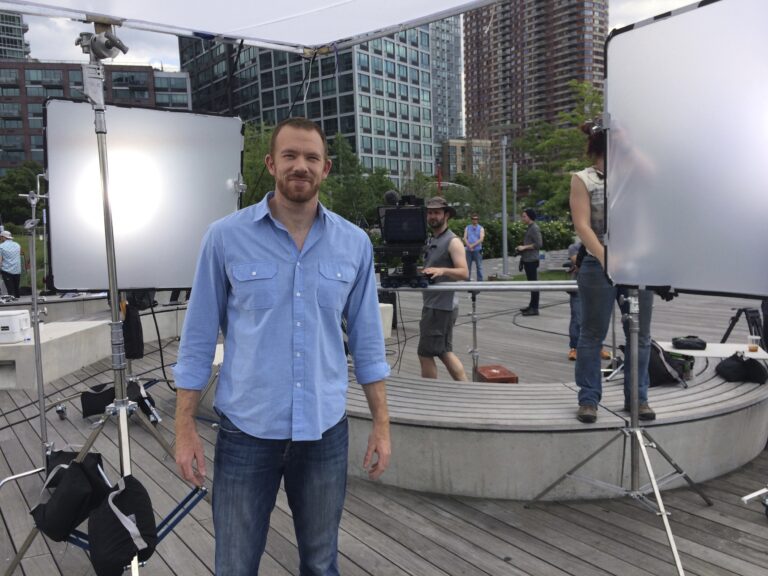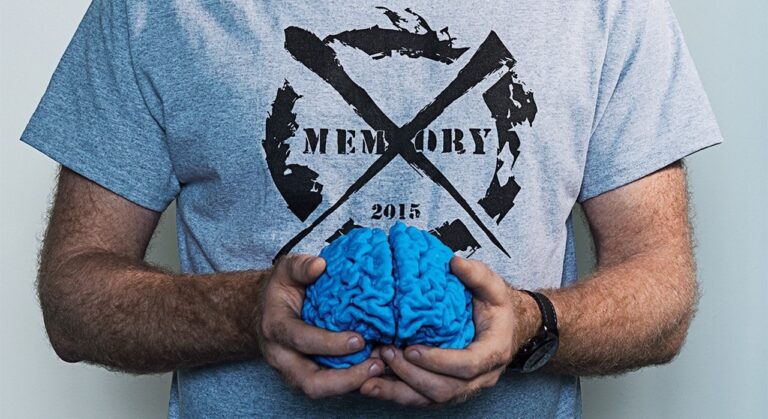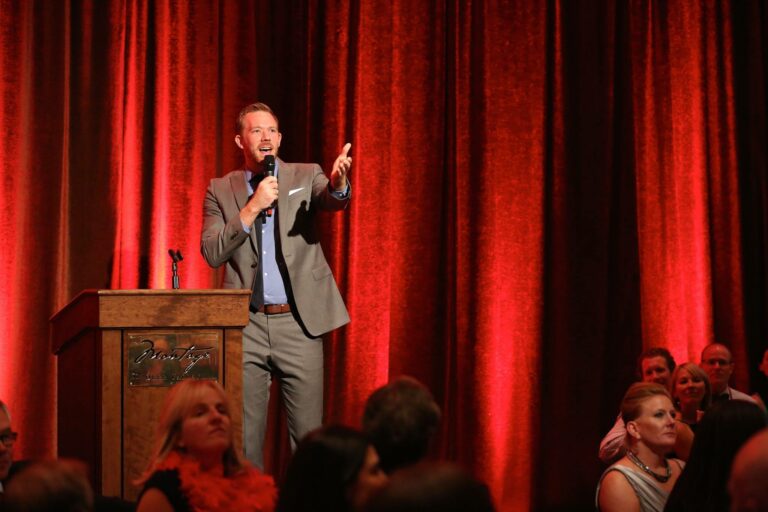Table of Contents
ToggleWho is Nelson Dellis
Nelson Dellis is a World Memory Athletes Champion, 5-time USA Memory Champion, memory consultant, memory athlete, and Alzheimer’s Disease activist. The Everest Memory Masterclass, designed by renowned memory expert Nelson Dellis, is a comprehensive course that aims to transform your ability to remember. As a leading expert in memory, Nelson is also the author of bestselling novels. Some of them are ‘Remember It,’ ‘The Names of People You Meet,’ ‘All Your Passwords,’ ‘Where You Left Your Keys,’ and ‘Everything Else You Tend to Forget.’
If the name sounds familiar to you, that is because of the impact that Nelson has created on the world of learning, education, and memory. Before becoming a memory athlete, Nelson worked as a software developer at Wolfram Research. He also worked as a veterinary technician and a Vedic mathematics specialist in Miami and Chicago. Nelson also co-founded the Memory League, formally known as the Extreme Memory Tournament, which is a type of competitive memory competition where memory enthusiasts challenge each other online.
Early Life
Nelson was born in Wimbledon, UK, with French Belgian descent. He grew up in England, France, and then finally the United States of America. He majored in physics and minored in mathematics, earning his master’s degree in computer science from the University of Miami. His thesis was on automated reasoning. Apart from this, he was an enthusiastic mountain climber and has climbed Alaska’s Mount McKinley including other mountains across the world.
Education
As a graduate of the University of Miami with a Master’s degree in computer science, he taught math in Miami, United States. In the city of Chicago, he worked at a local yarn shop, experimenting with large-scale projects. At this time, he also became a well-renowned public speaker and memory consultant.
Discovery of memory techniques
Nelson Dellis was inspired to improve his memory after witnessing his grandmother suffer from Alzheimer’s disease. The television program detailing his grandmother’s condition and her decline in memory due to the illness led him to enhance his own memory skills. It also prompted his participation in his inaugural memory competition in 2009. Since then, he has earned the title of USA Memory Champion five times and has made significant strides in the field of memory, learning, and education.
The competitive spirit in the field of memory led him to discover renowned memory techniques even until this year. You may have already heard or seen representations of these, including the Memory Palace Technique. It happens to be the cornerstone of the Sherlock Holmes series of movies and TV shows appearing on the BBC.
He was also featured in a 2012 documentary titled “Ben Franklin’s Blowing Bubbles at a Sword: The Journey of the Mental Athlete.”

Accolades and awards
Nelson Dellis’s achievements are too numerous to recount in one article. A summary would be that he is a five-time USA Memory Champion, starting in 2010, just one year after joining Memory Athletics, and spanning all the way to his latest USA Memory Championship, which he won in 2021. He’s designed the reputed Everest Memory Masterclass.
In 2019, Nelson held 2 American records. He was the first American to memorize a deck of cards in international competition in under 62 seconds. He was the second American to hold the Grandmaster of Memory title, and other notable records were broken. His current records stand as the US national record for memorizing the most names in 15 minutes at 2,335 names. He is also the former record holder for memorizing a deck of shuffled cards in 63 seconds and the most digits in 5 minutes. As of 2023, he ranks 50th in the world as a memory athlete and is regarded as one of the fastest Americans ever to grace the international memory competition.
Everest Memory Masterclass
In the Everest Memory Masterclass, through engaging videos and interactive exercises, Dellis shares techniques refined through his experience as a five-time USA Memory Champion. This masterclass covers everything from fundamental memory principles to advanced mnemonic strategies, empowering students to enhance their recall abilities significantly. Whether you’re a student looking to ace exams, a professional aiming to improve your productivity, or simply someone interested in sharpening your cognitive skills, this course offers valuable insights and tools to elevate your memory to new heights.

Nelson Dellis and his way around memory
Nelson Dellis is a true inspiration for those aspiring to self-improvement. By enhancing our memories, we evolve into superior versions of ourselves, capable of heightened performance and productivity. Consider the remarkable feat of recalling 235 names within just 15 minutes or effortlessly memorizing a shuffled deck of cards. Moreover, when applied to real-world scenarios, envision the ability to swiftly commit a pitch deck, report, or any other document to memory for efficient study purposes. This exemplifies the profound impact of Nelson’s memory technique, which he teaches in his Everest Memory Masterclass. Now, let’s delve into how you can adopt it for yourself.
Picture everything
Nelson Dellis believes that a person has the ability to remember everything and anything, provided they can picture it. Yes, your first technique pictures everything. If you wish to remember the igloos on the Arctic Circle, imagine an igloo with a man sitting outside having an ice cream. Nelson often mentions in his interviews that humans have the innate ability to remember through images, which is why we find pictorial representation the most entertaining. He states that the best way to proceed with any memory challenge is to picture it in your mind. Doing something fascinating or whimsical, something you will likely remember for a very long time.
Memory palace method
The memory palace method is renowned as the most expensive and intricate technique of memory there is. Used by experts worldwide, Nelson Dellis states that this remains the most important of all techniques to remember in memory. The memory palace technique requires the person to associate any memory that they wish to store with a location or an object. For example, if you wish to buy groceries, then one would either imagine their refrigerator or the kitchen.
The memory palace technique works by interlinking memories in your mind between the location, object, and information required, creating activated neurosynaptic pathways. And because of this cross-link, you could remember information about different items that all come from the same thread or source.
Information as images
The technique described is slightly different from the Picture Everything technique. According to Nelson Desillis, the best method for remembering information is to encode it as images. He argues that we do so in pictorial form when we recall anything. This explains why many individuals can efficiently and rapidly memorize routes from their homes to their schools and vice versa. Nelson suggests that the human mind is naturally inclined to process information in a pictorial format compared to non-pictorial data. By assigning an identity to your information or memory, you reinforce the neural pathways and facilitate easier access to that information.
Nelson states that when thinking in pictures, you are required to use as many sensors as possible. This technique is also called multisensory learning. By using different senses of your body, for example sight, touch, smell, and ECC, you can remember the same piece of information in a variety of ways, thereby strengthening your pathways to that piece of information in your mind. For example, why do you know the smell of turmeric and why do you know that turmeric is yellow in color? Or you know that a particular fire engine is colored red and you know the sound of a fire engine when it passes by you.
Store information to remember it tomorrow!
Another technique that Nelson Dellis clearly states as important for memory is the technique of remembering it for tomorrow. Nelson states that many people fail to understand or choose not to remember information they receive because they believe they have no immediate need for said information. A good way to use this technique would be to consider every piece of information received as important and required for tomorrow.
If you need to remember a name, then think of yourself as someone who will meet this person or such person being your boss tomorrow.

How to get started in your Memory journey
Having understood the techniques, the best way to get started on your memory journey using Nelson Dellis memory strategy is with a simple example and constant practice. You can enroll for his Everest Memory Masterclass and learn his techniques in detail. Let us show you an example of how to take things forward.
Be present when information is received
The first thing you must do when receiving any form of information is to be present in the moment. One could also call this mindfulness. The objective of being present is to actively listen using all 5 senses and to actively absorb set information as a relevant piece of information that you will require for you to function tomorrow in your daily life. You must treat that information as important as it can be. By subjecting all your five senses to this information, you are letting yourself remember that person or that information or that memory in multiple ways, thereby allowing you to recover that information in more than just one way.
Picking your memory
You must also choose what kind of memory you want to remember. Nelson Dellis clearly states that there is a lot of information that we receive as humans which is irrelevant to our lives. Information such as: What is the person wearing? Compared to: What is the name of the person? While both are equally important, remembering the name of a person can be considered a more pressing concern and thereby giving that piece of information a larger weight in comparison to the other.

Picking key Locations
Nelson suggests that the most effective method for recalling memories is to link them with locations that hold nostalgic or iconic significance to oneself. Wilson contends that the optimal approach to implementing this strategy is by selecting five locations closely intertwined with one’s daily routine. These could include the bathroom, study table, bedroom, hall, and kitchen. By associating all information with these five locations, one can promptly retrieve and retain it for an extended period.
For instance, when encountering a friend resembling a carrot, one could associate that individual with the kitchen. Despite its humorous nature, these techniques prove remarkably potent for memory retention. By transforming the learning process into a comprehensive experience encompassing visual and other sensory stimuli, individuals empower themselves to evolve into better versions of themselves.
Easy Recovery of Information
The ease of recovery of information becomes paramount when dealing with memory. Nelson states that the biggest hurdle that everybody faces with memory is not the encoding of memory into our minds, but it’s the recovery of that information which makes us feel that we have forgotten what we have learned. Nelson says that it is not true. We remember whatever we learned. The only difference is we forgot how to remove or recover that information from our minds and present it for us to use.
Easy recovery of information happens when you involve yourself in the process of remembering. If you are able to recreate what you felt during that time of remembering the information and committing it to memory..
For example, the frustration you felt when your pen was out of ink. Or the frustration you felt when your food had too much salt in it. That feeling helps you prevent doing it again by reminding you of what you felt when you had done it.
Push memory into long term
The first step of any memory is to push that memory into the long term. By actively interacting with that memory on several occasions, and by repeated recovery of information, your mind will categorize this information as something important. This will help you push that memory into long term memory and help you retain it for as long as you require or even more. The stronger the connection that you have with the memory and the stronger the feeling you have associated with that memory in the form of images or in the form of any other sense, the stronger the memory will be in your long term. The best way to remember what you read or what you have learnt.

Conclusion
The technique of memory, Everest Memory Masterclass pioneered by Nelson Dellis is both intriguing and fascinating. It demonstrates the potential that can be realized through the right amount of hard work and guidance. By immersing oneself in the memory being formed, a strong emotional connection is established, which underscores the importance of categorizing such memories in one’s mind. This technique not only aids in achieving long-term memory retention but also enhances the ability to isolate necessary information.
While seemingly simple, mastering this technique took years of practice for Dellis, a memory genius. Thus, the invitation is extended to begin practicing today, right now. With these techniques, one can aspire to become the next memory champion.
FAQs
1. Who is Nelson Dellis
Nelson Dellis is a renowned World Memory Athletes Champion, USA Memory Champion, memory consultant, and Alzheimer’s Disease activist. He is known for his expertise in memory techniques and has authored several best-selling books on memory improvement.
- What inspired Nelson Dellis to enhance his memory skills?
Nelson was motivated to improve his memory after witnessing his grandmother’s struggle with Alzheimer’s disease. This personal experience prompted him to explore memory techniques and participate in memory competitions.
3. What are some of Nelson Dellis’ notable achievements?
Nelson has won the USA Memory Championship five times and holds several American records in memory competitions. He is also the co-founder of the Memory League (formerly known as the Extreme Memory Tournament) and has been featured in documentaries about mental athletes.
- What are some key memory techniques advocated by Nelson Dellis?
Nelson promotes techniques such as the Memory Palace Method, Picture Everything, and encoding information as images. He emphasizes the importance of multisensory learning and associating memories with locations or objects.
- How can I start improving my memory using Nelson Dellis’ techniques?
To begin improving your memory, start by actively engaging with information using all your senses, choosing key pieces of information to remember, and associating them with familiar locations. Practice regularly and strive to make emotional connections with the memories you wish to retain for the long term.


